Species conservation
Species conservation ranks high on the list of projects for modern zoological gardens.
Zoo Duisburg is committed to the preservation of endangered wildlife on many levels - whether it be a bat care station at the zoo or in regional projects or as a partner to nature conservation organisations around the world.
Research conducted in zoos also provides important results, not only for the constant further development of species-appropriate animal care, but also for conservation measures for the animals in their natural habitat.
Zoo Duisburg is an institutional member of the Zoological Society for the Protection of Species and Populations (ZGAP) e.V., which campaigns worldwide for highly-endangered but little-known species to which hardly any other species protection organisations are dedicated. In addition to regular financial support, Zoo Duisburg is also represented on ZGAP's advisory board to provide expert advice on projects.
One of the ZGAP project species is the Brazilian Salvadori grey-breasted parakeet, which is also kept at Zoo Duisburg.
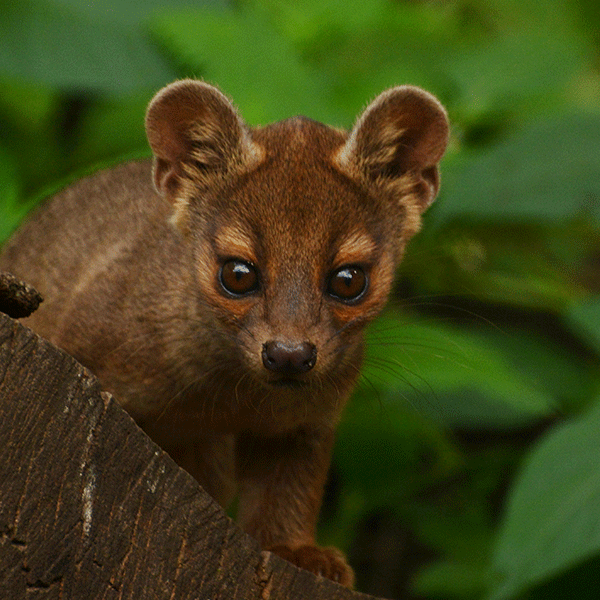
The Fossa Fund
in Madagascar
In 1995, Zoo Duisburg initiated an international fund to finance projects for the protection and research of the rare fossa, Madagascar's largest predator. The fund was used to carry out the first scientific studies on the fossa in their natural habitat, to establish a new nature reserve in the north-west of Madagascar, and to set up a breeding station for fossas there. Furthermore, the fund provided field equipment and training measures for local conservationists and scientists. The fund was used to carry out educational measures for the local population with the support of the NGO "Chancesfor Nature", and provided personnel support for research work in Madagascar. Educational work was carried out in Duisburg Zoo, including information boards and campaigns.
Further information: Chances for nature
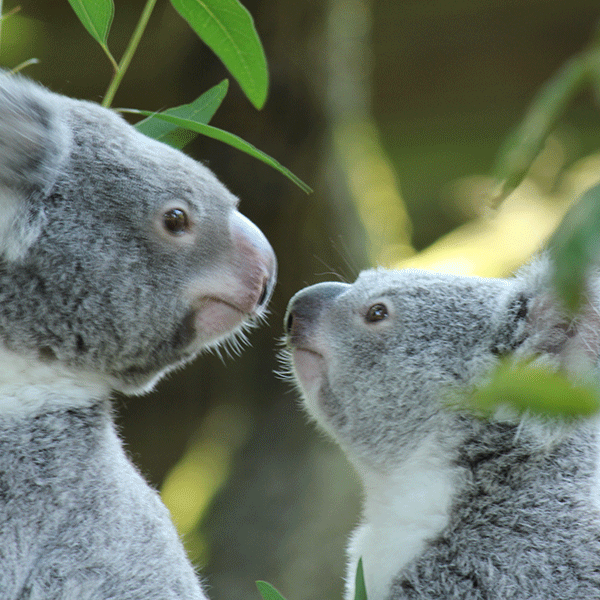
Port Macquarie
Koala Hospital
For years, Zoo Duisburg has maintained a personal exchange with the representatives of the facility. Here, injured and sick animals are rescued, medically treated and prepared for a possible reintroduction into the wild. In addition, the staff members work to preserve the koalas' ancestral habitat and, if possible, to enlarge it by planting eucalyptus trees. In addition, the team in Port Macquarie supports researchers by providing information on nutrition, diseases and the way of life and habits of wild koalas. At the same time, the aim is to raise public awareness of the need to protect this iconic tree-dwelling marsupial.
Further information: Koala Hospital
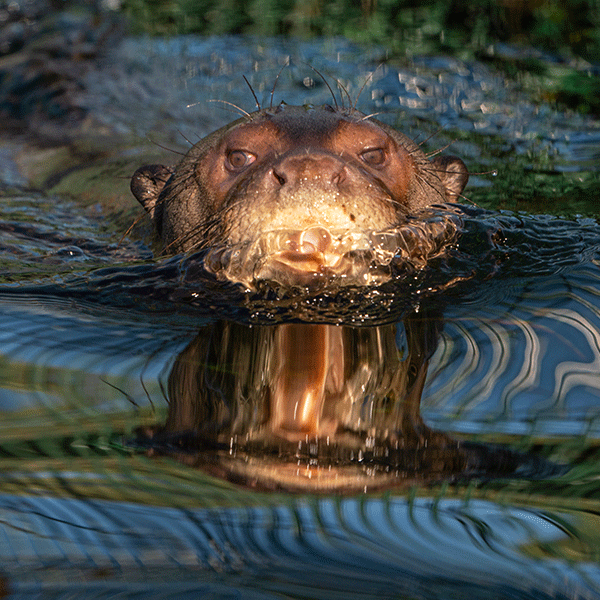
Giant otter reintroduction
in Argentina
A female giant otter born at Zoo Duisburg and which had since been living in Budapest Zoo, was made available for reintroduction into the wild in Argentina. The species had been extinct there for 50 years until the organisation Fundación Rewilding Argentina organised the reintroduction into the Iberá National Park in northern Argentina. This network of protected areas covers a total area of 15,000 square kilometres, almost half the size of North Rhine-Westphalia, so there is enough space even for these large predators.
Further information: Rewilding Argentinia
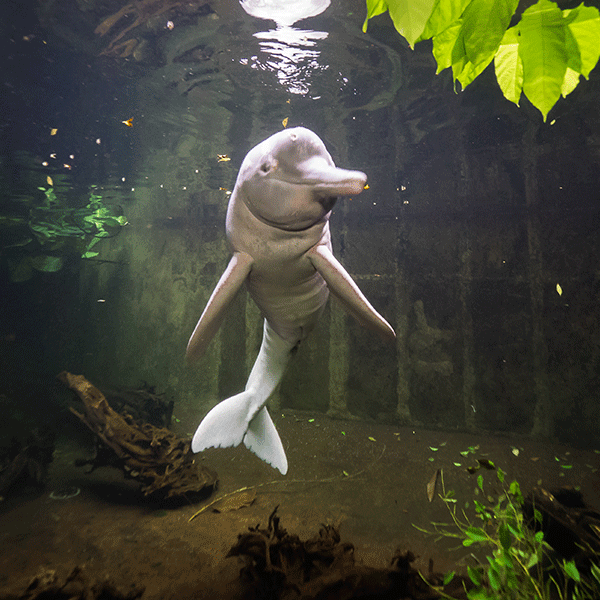
Protection of marine mammals
in South America
YaquPacha is a conservation organisation that has been active in South America since 1992 dedicated to the protection of South American marine mammals (including conservation projects for dolphins, manatees, seals and otters) and which Duisburg Zoo supports with a variety of activities. These range from annual financial support through fundraising to educational work carried out at the zoo by providing, among other things, information boards and organizing regular action days.
Further information: Yaqu Pacha
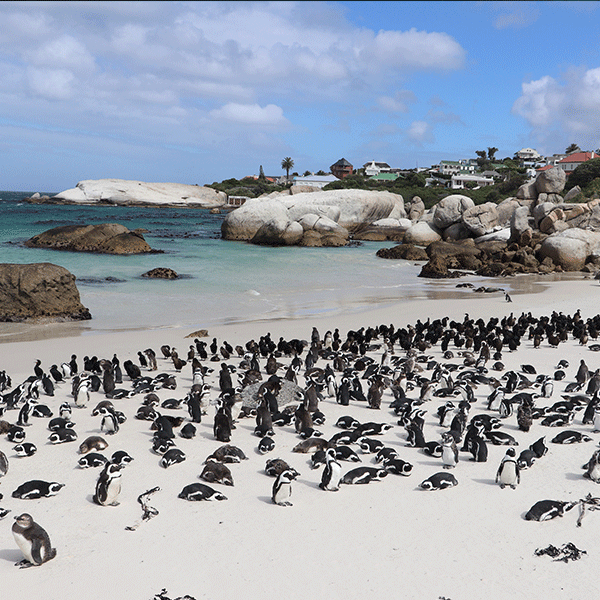
Help for African Penguins
in South Africa
Zoo Duisburg supports the chick-rearing project of the Southern African Foundation for the Conservation of Coastal Birds (SANCCOB) for the highly endangered African penguins. The foundation rescues abandoned, injured or weak chicks, cares for them and rears them and then releases them back into the wild. SANCCOB is a conservation organisation that has been working since 1968 to protect seabirds and their habitat in southern Africa (including running a rescue and rehabilitation station for seabirds in Cape Town and doing, among other things, both research and educational work). The organization is financially supported by many zoos, including Zoo Duisburg.
Further information: Sanccob
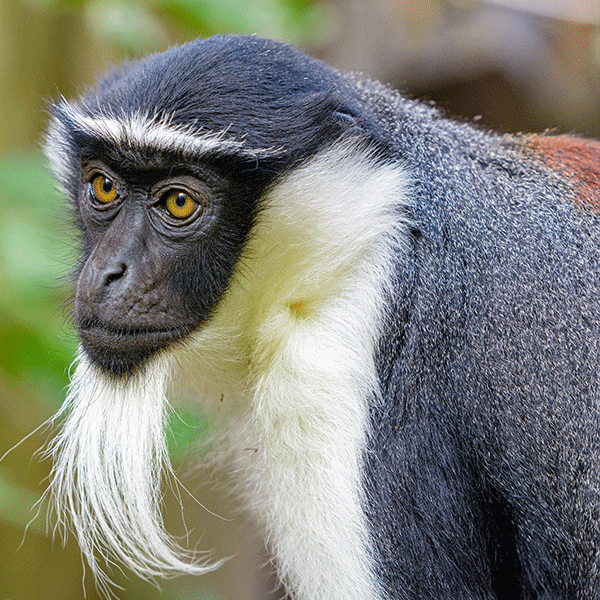
Protection of primates
in West-Central Africa
Together with other zoological gardens, Zoo Duisburg provides annual financial support for the West African Primate Conservation Action (WAPCA) by acquiring donations and carrying out educational work at the zoo through such things as information boards and action days. WAPCA is a conservation organisation that has been working in West Central Africa since 2001 to protect the rainforest and the endangered monkey species in the region by determining the monkey population in the region, protecting the remaining intact habitats, controlling the illegal bushmeat trade, doing educational work on site, providing a sanctuary for confiscated monkeys in Ghana and establishing a tourism infrastructure). Zoo Duisburg keeps two of the four WAPCA focus species, the Roloway's monkey and the white-crowned mangabey.
Further information https://www.wapca.org/
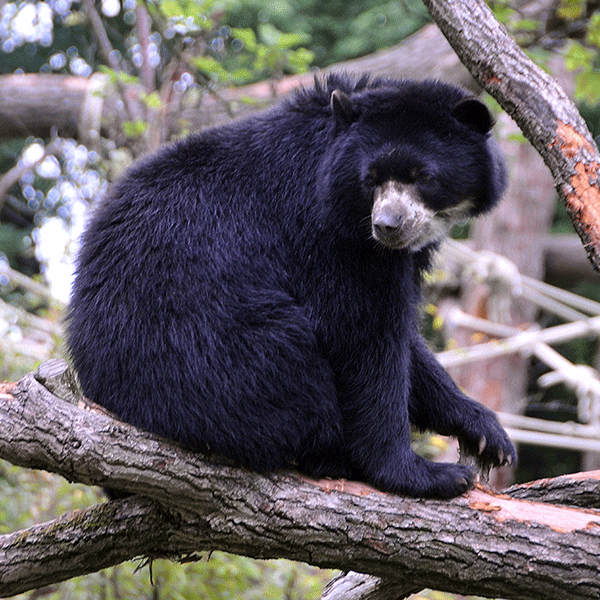
Land for spectacled bears
in Ecuador
With the support of the Zoo Duisburg, urgently needed habitat for the spectacled bears in South America, classified as "endangered" by the IUCN, was able to be purchased. The spectacled bear population in the Tapichalaca Reserve of the Ecuadorian NGO Fundación de Conservación Jocotoco has been noticeably increasing. The reserve is an important connection between the adjacent Yacuri and Podocarpus National Parks. The purchase of an adjoining plot of land will add a further important area to the protected habitat to ensure the long-term survival of the spectacled bear population in the Tapichalaca reserve.
Further information: Jocotoco
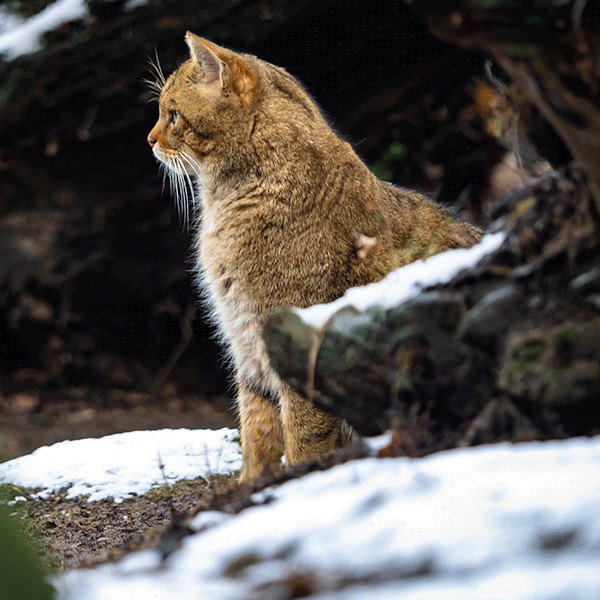
Reintroduction of wild cats
in Bavaria
A reintroduction project of the European wildcat in forest regions of Germany organised by the Bund Naturschutz in Bayern e.V. has been in effect since 1987 (including the reintroduction of zoo-born animals in the Bavarian Forest and the Spessart). Bund Naturschutz Bayern sees itself as an advocate for nature, landscape and people with the aim of preserving the natural foundations of life for people, animals and plants. Duisburg Zoo, by so far providing a total of five offspring, has participated in the successful reintroduction. By means of information boards, the zoo informs visitors about this important work.
You can find more information here.
